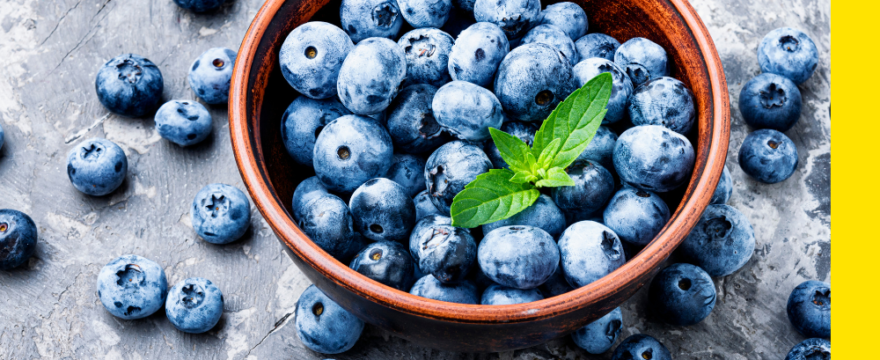When you’re navigating chronic health challenges—whether it’s persistent fatigue, low mood, depression, or recovering from unhealthy food addiction—what you eat can feel like one more overwhelming thing to figure out. The internet floods you with conflicting advice. What’s actually nourishing? What’s just hype?
At the 2025 Plant-Based Cancer Solutions Summit, Dr. Shireen Kassam—a consultant hematologist and certified lifestyle medicine physician—shared powerful evidence about how a plant-based diet can transform your health, especially when you’re facing cancer or trying to prevent it.
As women in caring professions, we’re often taking care of everyone else. But your healing matters too. Here’s what you need to know to support your body, mind, and spirit—without adding to your stress.
Why Nutrition Matters More Than You Think
It might surprise you to learn that up to 35% of cancers are linked to diet. Dr. Kassam shared that this has been known since the 1980s, but it’s still not something most doctors talk about.
“I hadn’t intended it to be part of my clinical practice,” Dr. Kassam explained, “but once I saw the evidence, I couldn’t ignore it.”
In her day-to-day work treating blood cancers, Dr. Kassam sees firsthand how a poor diet impacts not just cancer risk but outcomes from treatment. Many of her patients are also dealing with conditions like high blood pressure, diabetes, and obesity, which all reduce the effectiveness of cancer treatments and increase the risk of recurrence.
So what’s the good news?
“We know now that improving your diet can help your body respond better to treatment, recover more fully, and reduce the chance of cancer coming back.”
And this applies even if you already have cancer.
What the Science Says: Plant-Based Diet for Cancer Prevention
Dr. Kassam isn’t just speaking from personal experience. She’s a published researcher and co-founder of Plant-Based Health Professionals UK. Her deep dive into the evidence revealed a clear pattern:
Diets high in whole plant foods reduce the risk of common cancers like breast, prostate, and colorectal cancer.
A healthy plant-based diet reduces inflammation, supports the immune system, and improves gut health, all crucial for healing and long-term wellbeing.
Patients who adopt plant-based nutrition often improve blood pressure, cholesterol, blood sugar, and weight—all factors that impact cancer recovery and overall energy.
The Common Link: Cancer, Depression, Autoimmune Disease, and More
If you’ve struggled with your mood, autoimmune issues, or metabolic problems, this is for you.
“There’s a shared mechanism behind most chronic diseases,” Dr. Kassam said. “Inflammation, oxidative stress, insulin resistance—they all play a role in cancer, depression, and chronic illness.”
Translation? Improving your diet isn’t just about cancer—it helps with mental health, hormonal balance, and energy too.
“What Should I Eat?” – Top 2 Things to Start Doing
Let’s keep this simple and doable. Dr. Kassam recommends starting with what to add, rather than focusing on restriction. Here are her top 2 tips:
1. Eat More Colorful Fruits and Vegetables
Aim for at least five servings a day. These are rich in antioxidants, fiber, and phytochemicals that fight inflammation and support immune function.
2. Prioritize Plant-Based Proteins
Think beans, lentils, nuts, seeds, and whole grains. These foods don’t just give you protein—they deliver fiber, minerals, and longevity-boosting benefits animal products can’t.
And What to Avoid? 3 Things to Ditch for Better Health
1. Red and Processed Meat
There’s no safe amount. Bacon, sausage, deli meat—they’re Group 1 carcinogens. That means they’re as risky as smoking when it comes to cancer.
2. Alcohol
Even moderate alcohol increases your cancer risk, particularly breast cancer. Dr. Kassam says the healthiest amount is zero.
3. Dairy
The research is still evolving, but replacing dairy with other plant-based options may reduce your risk of prostate and breast cancer and improve your metabolic health.
But What About Fish?
This was a powerful moment in the conversation. While many believe fish is a health food, Dr. Kassam and summit host Dr. Joel Fuhrman raised concerns about toxins in fish, like microplastics and heavy metals.
Plus, you can get omega-3s from flaxseeds, chia seeds, walnuts, and algae oil without the toxicity.
Real-Life Impact: “Can This Really Work?”
You might be wondering: But what about results?
Dr. Kassam sees it all the time. Patients lowering their blood pressure, improving cholesterol, reversing diabetes—even while undergoing cancer treatment. One woman stopped needing medication for hypertension after switching to a plant-based diet. Another saw her blood sugars normalize.
“Patients are often already asking, ‘What can I do?’” Dr. Kassam said. “And now I have an evidence-based answer.”
Systemic Challenges and How You Can Be Part of the Change
It’s frustrating to hear that most doctors aren’t trained in nutrition. And yes, many hospitals still serve bacon and sausages to cancer patients.
But Dr. Kassam and her team are changing that. Through Plant-Based Health Professionals UK, they’re educating doctors, nurses, and dietitians about the healing power of food.
And you? You’re not powerless.
By making changes in your own kitchen and sharing what you learn, you can be part of this ripple effect.
Start Small, but Start Today
If you’re feeling overwhelmed, that’s okay. You don’t have to go 100% plant-based overnight.
Start by:
- Swapping out one meal a day for a plant-based option
- Trying a new recipe with lentils or chickpeas.
- Adding one extra serving of vegetables per meal
- Replacing dairy with unsweetened nut milk
- Saying no to processed meats and yes to colorful, healing foods
Final Thoughts: You Deserve to Feel Better
If you’ve been living in survival mode—exhausted, discouraged, just trying to get through each day—I want you to know: Food is one of the most powerful tools you have. Not as punishment. Not as restriction. But as nourishment. As hope. As medicine.
“Empowering people with knowledge,” Dr. Kassam says, “is the first step to healing.”
So wherever you are on your journey—healing from cancer, recovering from burnout, or just ready to feel better—this is your invitation to take the next step. Because you are worth it.

Leave a Reply